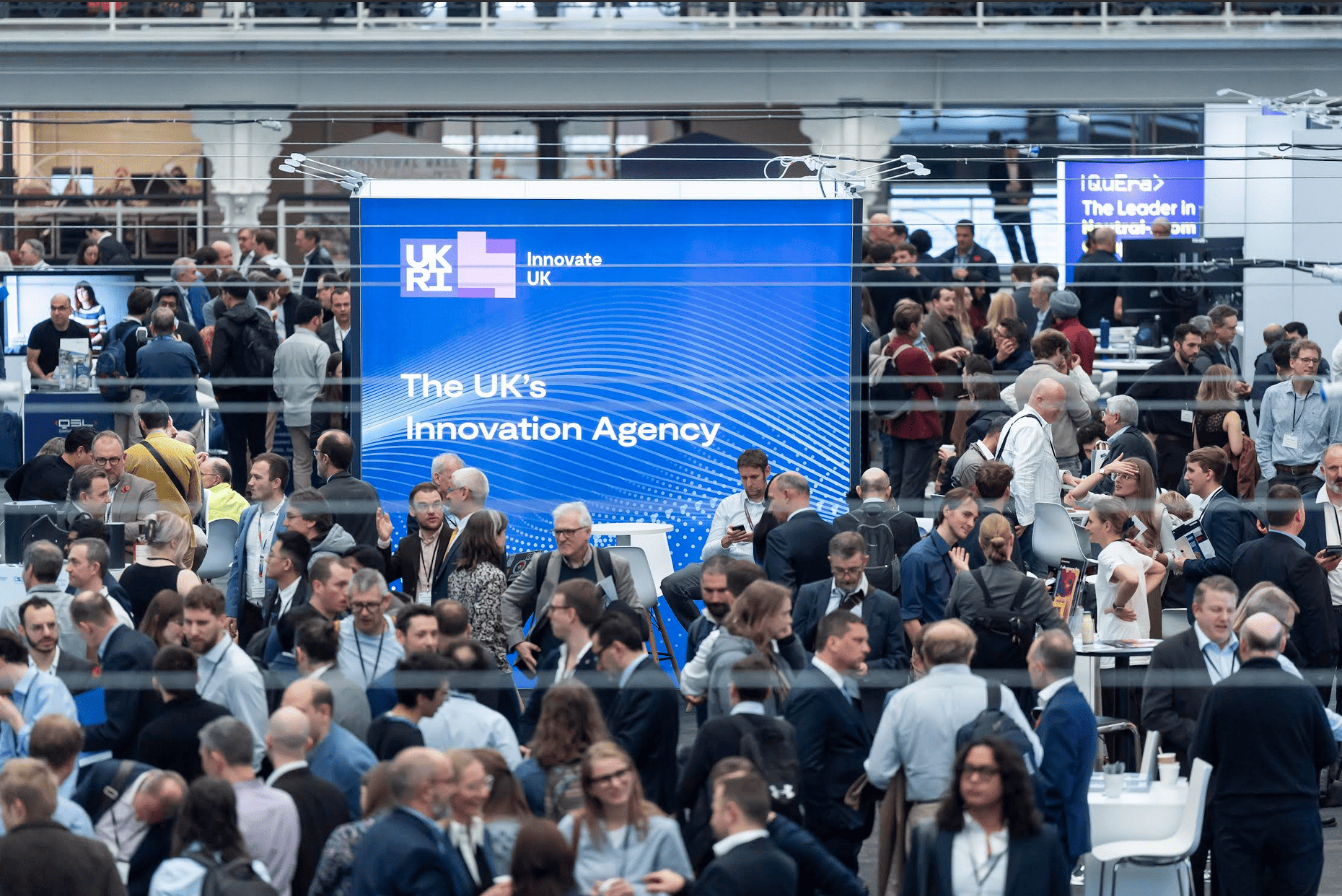The UK National Quantum Technology Programme: Celebrating a Decade of Quantum Discovery

Insider Brief
- The UK National Quantum Technologies Showcase 2024 brought together over 2,000 industry experts and enthusiasts, celebrating a decade of quantum innovation through the National Quantum Technologies Programme (NQTP).
- Key announcements included £100 million in new government funding for research hubs, a collaboration between Nu Quantum and CERN, and Aquark Technologies’ successful quantum sensing trial with the Royal Navy.
- Industry leaders expressed optimism for quantum’s future impact on complex global challenges, with Innovate UK’s Dr. Stella Peace highlighting the importance of continued growth and collaboration.
PRESS RELEASE — The UK National Quantum Technologies Showcase 2024 celebrated its biggest showcase to date on Friday (8 November) with over 2000 quantum change-makers attending as NQTP marked its 10th anniversary.
Organised by Innovate UK and EPSRC, in collaboration with NQTP, the showcase covered a range of subjects including quantum sensing, imaging, computing and communications and showcased innovations across the sector.
NQTP has attracted £1.1billion in investment since 2014 and at the showcase, Professor Sir Peter Knight, Chair of NQTP praised the enablers and inspirers who have spurred on this industry from the ground up over the past 10 years as the ‘heroes’.
Speaking at the Business Design Centre in London about her optimism for the industry’s growth, Dr Stella Peace, Interim Executive Chair, Innovate UK, said: “All of this is about impact. The problems we solve, the benefits we create, for all of us as citizens. We know this technology can help us to solve some of the most complex problems that humanity faces and that rests upon the industry.
“Continuing this amazing growth trajectory relies upon companies continuing to scale, vital connections being made and our leading position being maintained.
“I am really optimistic about this, and I am convinced that with the passion, capability and drive that I have felt today, this industry can and will continue to thrive and will be achieving things tomorrow that we can barely even imagine today.”
Dr Dave Smith, National Technology Adviser at the Department for Science, Innovation and Technology said the government was steadfast in supporting the sector, as he highlighted the Secretary of State’s announcement of £100million in funding for five new quantum research hubs.
He said: “In the UK, we’ve got the second highest level of private quantum investment globally, trailing only to the US.” He added that key to the programme’s success to date had been “consistency and collaboration” and the upskilling in the next generation of quantum engineers.
Some of the 96 exhibitors used the showcase event as a platform for their announcements.
Nu Quantum, a leading quantum startup announced a collaboration with CERN to adopt White Rabbit timing technology to enable data centre-scale quantum computing networks. On the Nu Quantum stand, the team previewed their Quantum Networking Unit (QNU), a technology that will enable multiple quantum computing nodes to be woven together into a distributed quantum computing machine.
Meanwhile, Aquark Technologies announced a successful demonstration of quantum sensing at sea, in partnership with the Royal Navy. On board HMS Pursuer, Aquark trialled their method, called “supermolasses trap,” making it possible to create cold atoms without needing strong magnets, which makes their sensors smaller, cheaper, and easier to use. Due to this robustness and portability, it paves the way for applications across not only the military and defence sectors, but energy, critical infrastructure, telecommunications, and finance.
Finally, the University of Glasgow and the University of Strathclyde announced their intention to establish a world-leading sensor company, Quantrologee, devoted to high-precision measurement technology. This joint spin-out venture will be founded upon decades of expertise and IP in quantum technologies and nanofabrication. The teams, all based in Glasgow, have been at the forefront of the NQTP over the past 10 years and intend to establish a co-founded company to commercialise multiple strands of research and emerging product lines.
Of the 2,000 quantum change-makers who attended from scientists and innovators advancing the technology to end-users and potential adopters, and investors scouting the next major opportunity, each found the event valuable.
Chiara McCormack, Head of Programmes at STL Tech said: “Supporting the spin out companies we work with from the early stages of growth is an incredible challenge but also represents an opportunity to contribute to the development and productisation of quantum technologies, which we believe will have a profound impact on the future economy. It’s been a fantastic day with inspiring talks, and great to see so many groundbreaking applications of this technology.”
Rosaria Cercola, Project Manager for TUM Venture Labs, a deep tech start-up incubator said: “I travelled from Munich to visit the show to learn about the UK quantum ecosystem. It’s been a really inspiring day. I’ve seen a lot of potential for two-way international collaboration with quantum start-ups in the UK and Germany.”
Luke Roberts, Senior Policy Adviser at HM Treasury said: “I came here today to learn more about this sector and how the government can support its development further. It’s been informative and a great opportunity to meet people in this space.”
The transformational impact of the industry is set to be further celebrated in 2025 for UNESCO International Year of Quantum Tech.
For more information on Innovate UK and the UK National Quantum Technologies Programme visit https://iuk-business-connect.org.uk/quantum/.
